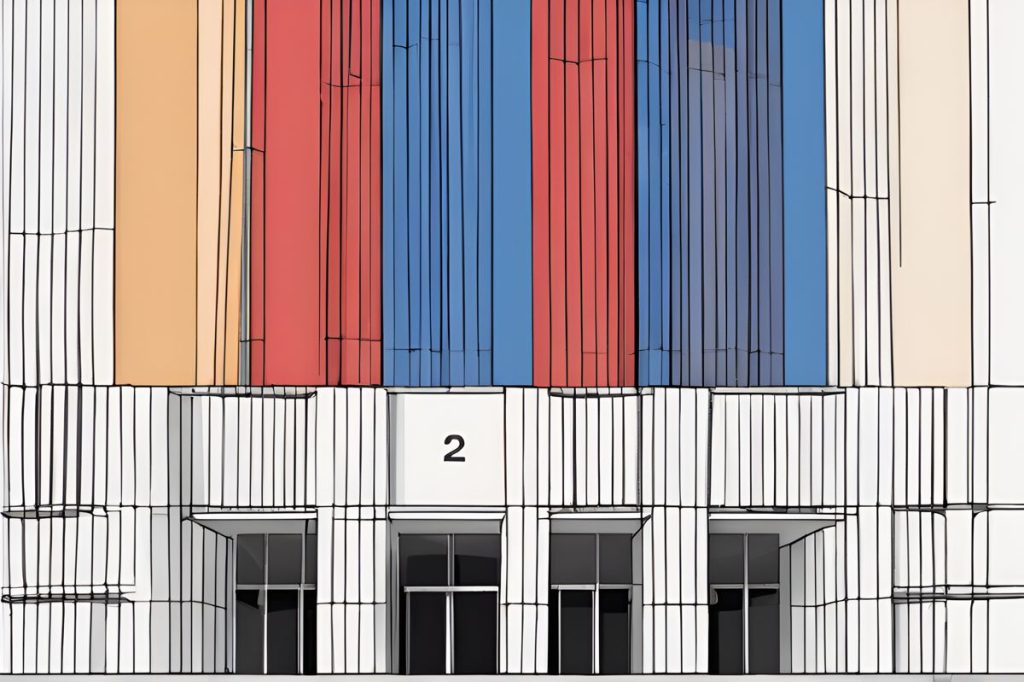The European Parliament is bracing for a significant rightward shift as eurosceptic nationalists gain influence following recent elections. This could lead to a reevaluation of legislative priorities, impacting areas such as Russia relations, the cost-of-living crisis, climate change, and immigration over the next five years.
What shift is expected in the European Parliament following recent elections?
The European Parliament is expected to experience a significant shift to the right, with eurosceptic nationalists gaining influence. This transformation could affect the EU’s approach to challenges like Russia relations, the cost-of-living crisis, climate change, and immigration, leading to a potential reevaluation of legislative priorities over the next five years.
The Electoral Landscape
The European Parliament, representing the EU’s 450 million citizens, is on the verge of experiencing a significant transformation. As voters in 21 EU nations, including powerhouses France and Germany, wrap up the final day of a four-day election period, predictions suggest a pronounced swing to the right. This change reflects the growing influence of eurosceptic nationalists and indicates a potentially challenging future for the European Union.
The implications of this shift are profound, with the European Parliament at the heart of addressing key challenges such as relations with an increasingly assertive Russia, the competitive pressures from China and the United States, and the pressing issues of climate change and immigration. The results of the election will have a notable impact on the EU’s ability to address these challenges in a unified and effective manner.
Voter Sentiments and Political Reactions
The prevailing political and economic climate has influenced voter sentiment across the continent. Many Europeans are feeling the pinch of the cost-of-living crisis, are anxious about immigration, and are questioning the financial burdens of the green transition. This has provided fertile ground for hard and far-right parties, which have capitalized on these concerns by presenting alternatives to mainstream political movements.
In this environment of geopolitical tension, exacerbated by the ongoing conflict in Ukraine, the electorate’s unease has been a boon for nationalist rhetoric. Eurosceptic parties are expected to make significant gains, reshaping the political landscape and legislative priorities of the European Parliament. This could lead to a parliament less inclined to pursue aggressive policies on climate change and less receptive to the reforms necessary for EU expansion, while showing a renewed focus on stringent immigration controls.
Exit Polls and Projections
Preliminary exit polls have already begun to sketch the contours of the new political scene. For instance, the Netherlands witnessed nationalist Geert Wilders’ party make remarkable gains, signaling a stark departure from previous election results. Meanwhile, forecasts in Belgium suggest the far-right Flemish separatist party, Vlaams Belang, might achieve unprecedented support, though they may still face exclusion from governance by other parties.
As the votes are tallied, the European People’s Party is expected to maintain its position as the largest group in the European Parliament. This outcome would reinforce Ursula von der Leyen of Germany’s bid for a second term as head of the European Commission. However, securing a parliamentary majority may necessitate alliances with right-wing nationalists, potentially giving parties like Italian Prime Minister Giorgia Meloni’s Brothers of Italy greater bargaining power.
Anticipating the Next Five Years
With the European Parliament poised to undertake a conservative pivot, the next five years will likely see a reevaluation of legislative priorities. The assembly’s shift to the right suggests that it may exhibit less fervor in championing climate initiatives and be more reticent toward the reforms required for EU expansion. Conversely, there may be a heightened eagerness to institute measures aimed at curbing immigration.
While the actual composition of the European Parliament and the alliances formed will only crystallize after all votes are counted, it is evident that the political dynamics within the EU are set for a considerable change. This election not only reflects the current mood of the European electorate but also sets the stage for the direction the EU will take in confronting the pressing issues facing the continent and its peoples.
What shift is expected in the European Parliament following recent elections?
The European Parliament is expected to experience a significant shift to the right, with eurosceptic nationalists gaining influence. This transformation could affect the EU’s approach to challenges like Russia relations, the cost-of-living crisis, climate change, and immigration, leading to a potential reevaluation of legislative priorities over the next five years.
How has voter sentiment influenced the recent elections in the European Parliament?
Voter sentiment across Europe has been influenced by factors such as the cost-of-living crisis, immigration concerns, and the challenges of the green transition. These sentiments have created an environment where hard and far-right parties have capitalized on presenting alternatives to mainstream political movements, leading to a potential rise in influence for eurosceptic nationalists.
What are the implications of the rightward shift in the European Parliament for legislative priorities?
The rightward shift in the European Parliament could impact legislative priorities, potentially leading to a decreased focus on aggressive climate change policies, less enthusiasm for EU expansion reforms, and a renewed emphasis on strict immigration controls. This shift may reshape the political landscape and direction of the EU in the next five years.
How are exit polls and projections reflecting the changing political scene in the European Parliament?
Exit polls and projections are already showcasing the changing political scene in the European Parliament, with nationalist parties making gains in countries like the Netherlands and Belgium. These trends suggest a departure from previous election results and indicate a potential realignment of power dynamics within the European Parliament.

